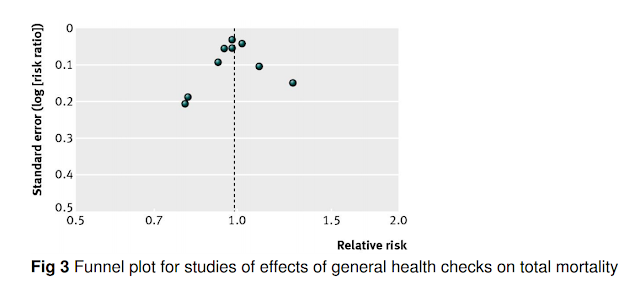The National Health Service announces health checks by making use of the mood of the "Full Monty" or "The Calendar Girls." Let yourself be undressed for a good cause - they say - your body deserves it. In Spain, on the other hand, this approach is more typical to the private offer. "The best way to take care of your health is to open your eyes to possible diseases and not hesitate to undergo periodic tests to prevent them," says "10 Minutos" magazine in an article on the subject. Many private centres have "Medical check-ups" and most insurers and clinics offer health check-ups, as can be seen in an announcement from the Quirón Teknon Hospital: "basic preventive check-up: previously € 820 - now € 690; advanced preventive check: was € 1,800 - now € 1,520". The Sanitas proposal that offers the possibility of choosing between "checks: classic, integral and complete" is also interesting just as the National Conference of Marketing and Sales Management of the Health Sector that says "the most demanded from the iGlobalMed platform are the health checks for managers who are going to work abroad". To end this journey through the world of health reviews, see the clip below from the University Hospital of Navarre website:
What does the evidence for health reviews say?
In a country that is so committed to secondary prevention as the United States, surprisingly, the Society of Internal Medicine has posted the following recommendation in Choosing Wisely: "Do not perform routine general health checks for asymptomatic adults." What sources do US internists cite to base this recommendation? If you check the sources you’ll see that the first source of the four mentioned in the document is a systematic review and a meta-analysis carried out by a group of researchers of the Nordic Cochrane Centre from 14 randomized clinical trials with almost two hundred thousand participants that has concluded that health reviews don’t reduce morbidity or overall mortality; moreover the study adds that there have been no improvements in specific cardiovascular and oncological mortality.
In the graph below, with the contribution to the average relative risk of dying from virtually zero health reviews (0.99), the 9 studies finally chosen for this variable showed relative risks that oscillated in a balanced way between the left (bring value) and right (are counterproductive) around the value 1:
The review and the meta-analysis helps us conclude that, despite not being able to reduce either mortality or morbidity, health checks could have an association with overdiagnosis and overuse, not to mention the risks inherent in diagnostic tests, anxiety caused by the false positives, the incidental findings and the sense of security produced by the negative results, some of them false. In summary, health checks are at the heart of another controversy that has arisen between consumerist clinical practice and evidence.
Jordi Varela
Editor
Jordi Varela
Editor





No comments:
Post a Comment